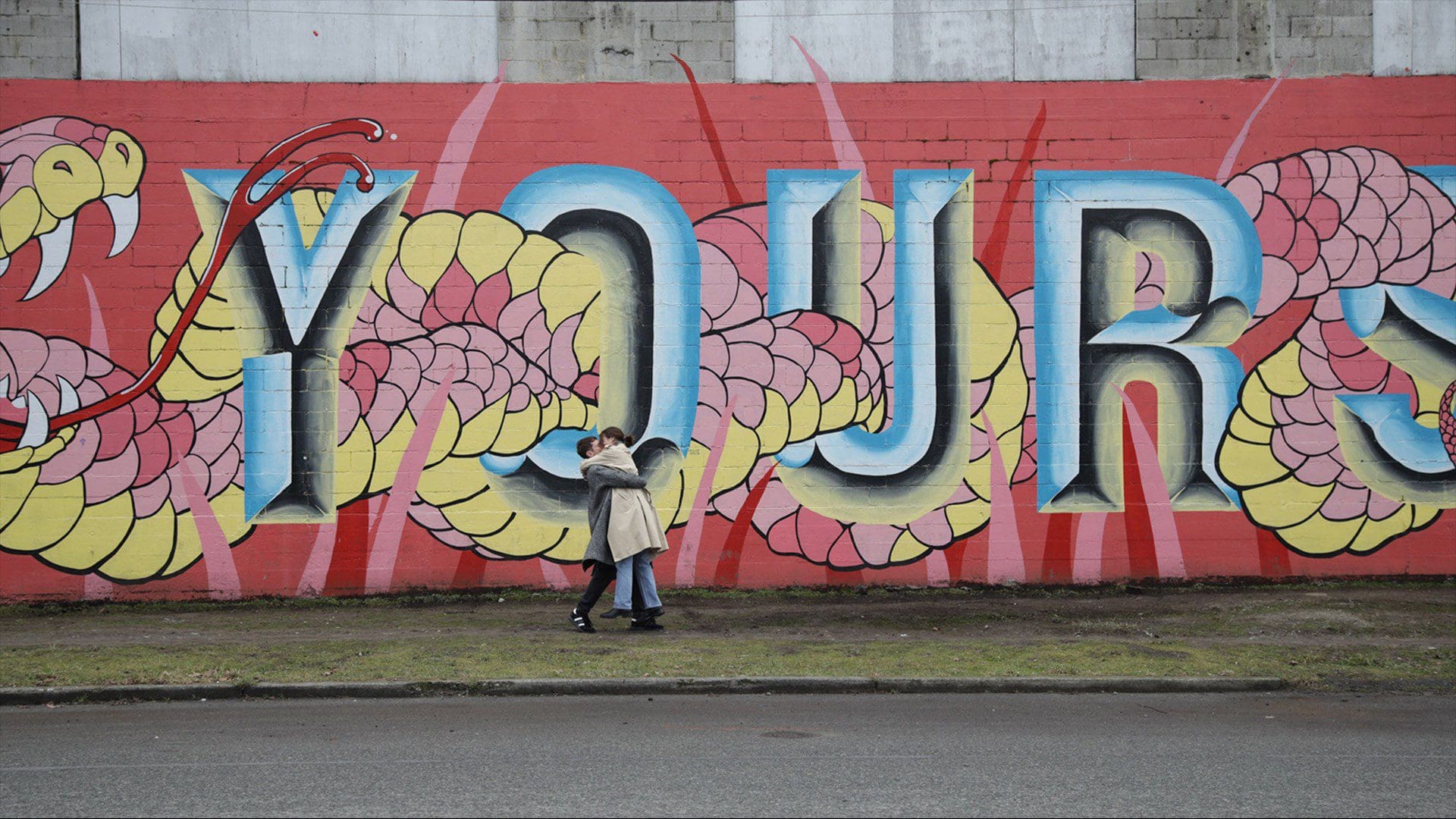
There’s a moment in the new film Little Fish where Olivia Cooke’s Emma says the following: “When your disaster is everyone’s disaster how do you grieve?” Given the sentiment, it would be easy to mistake the film, directed by Chad Hartigan, as yet another of the recent spate of COVID-set movies. However, that connection with our real lives is purely coincidental and it’s only part of the reason Little Fish ends up being so effective.
Adapted by Mattson Tomlin from Aja Gabel’s short story of the same name, the film follows Emma and Jude (Jack O’Connell), a young couple struggling to survive a mysterious global pandemic in which people suddenly lose their memory. Though NIA (Neuro-inflammatory Affliction) still seems relatively new when the film starts, what we see still resonates with what we’ve experienced over the last year: news reports that convey increasingly more alarming information about the disease, government-mandated measures to mitigate spread, a growing hysteria as the disease becomes more widespread, even some face masks. It’s all there and it can admittedly make Little Fish a bit of an uncomfortable watch. Thankfully, however, the film’s pandemic is really just texture for what’s essentially a character-driven romance — one that turns tragic when Jude begins to forget.
The major reason the film is able to transcend its potentially triggering premise is that Cooke and O’Connell are so excellent in it. One of the first things we see Jude say to Emma is that he didn’t expect her voice, her accent, to sound like it does and indeed, it does feel like a minor revelation to hear Cooke get to act without covering her British accent. Cooke has turned in solid work many times over playing an American, but hearing her use her real accent here – resonant and filled with charisma – one wonders if she hasn’t been forced to work at a disadvantage this whole time. As the film’s narrator and the character still grounded in their memories, Cooke has to not only carry the film’s narrative weight, but on some level, convince the audience that Emma and Jude’s love story is worth mourning in the first place.
When Jude suggests that they should get another dog since Emma, a vet, has had to euthanize so many mere minutes after getting angry when she made the exact same suggestion, we can see the weight of Emma realizing Jude is infected all over Cooke’s face. Indeed, as Jude’s memory loss accelerates, it’s largely Cooke who has to convey the fear and grief of that loss, looking pained whenever Jude misremembers a detail of their wedding day or growing angry when he balks at going through a procedure that could stop the NIA’s progress.
That said, while Cooke is largely tasked with conveying the weight of losing a loved one, O’Connell is equally responsible for the film’s success. He keeps Jude’s growing sense of confusion understated, making the audience feel both his fear and the grounding affection he feels for Emma. His upset when doctors tell him that taking part in an experimental treatment will essentially mean lobotomizing him is equally palpable as the moment that follows, when Emma kisses him on the walk home and he carries her down the street a while they embrace.
There and throughout, Cooke and O’Connell’s chemistry is what makes Little Fish so devastating. We buy that these people are in love and every second of the film pulses with the tragedy that they may lose it. One of their best scenes together is Emma and Jude’s first “date,” during which she leaves a Halloween party to hangout with Jude and his friends. They end up at a club of some kind and as they wait in a bathroom line, Jude asks if he can kiss her. Emma responds that she’s sort of already seeing someone and that seems like the end of it, but then, just as she’s about to walk away, Emma turns and kisses Jude, making it clear that Tim or Tom or whatever he’s called has no chance.
It’s a beautiful scene–not just because of how romantic it is–but because of how it’s presented. Cinematographer Sean McElwee’s images are low lit, but rich in color and warmth. That scene, with its flashing, colored lights and dark background feels just as rich as a later scene where Emma and Jude embrace in the woods while they imagine a Hawaiian honeymoon they never got to take. Equally responsible for the film’s mood is composer Keegan DeWitt’s score, which is at turns haunting, melancholy, sentimental and dizzily romantic. However, while both of those elements are two of Little Fish‘s major assets, they are just some of the filmmaking flourishes that allow Hartigan to so effectively convey this story.
That club scene is one of many memories we see throughout the film, but it’s also a memory we see more than once. The first time, it’s from Emma’s point of view, simply her recording that moment on paper to make sure she can recall it exactly for Jude later. In that instance, we see bright white lines on the walls behind Emma and Jude, but when Jude struggles to remember that same, flirtatious, pivotal conversation later, the white lines are gone—a visual expression that he’s forgetting the details. Every memory we see is subjective and the ways they are replayed or constructed are Hartigan’s strongest tools in making the audience not only understand exactly what NIA does but to invest in Emma and Jude’s love story.
Despite its high-concept and eerily familiar premise, Little Fish is, at its heart, a meditation on love and memory. Many will inevitably compare it to films like Eternal Sunshine of the Spotless Mind or last year’s i’m thinking of ending things and while that urge would be valid, what allows Little Fish to transcend those comparisons is its connection to this moment.

